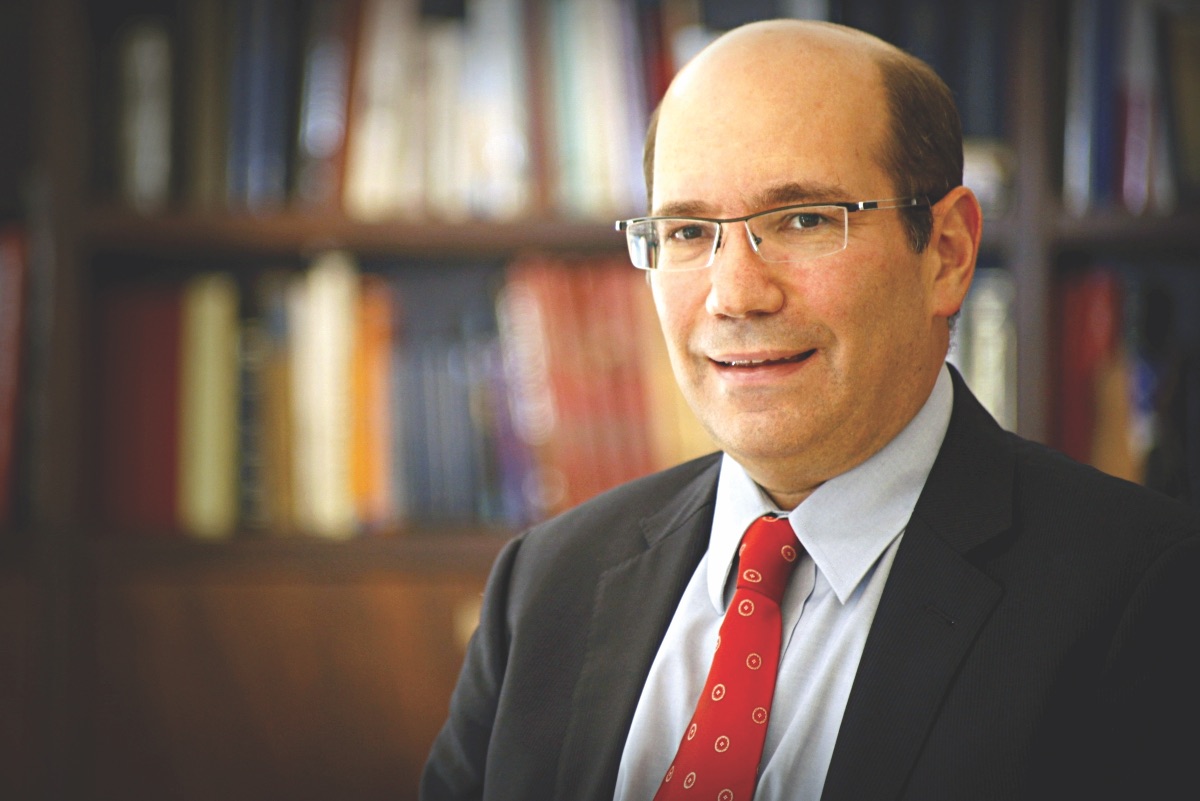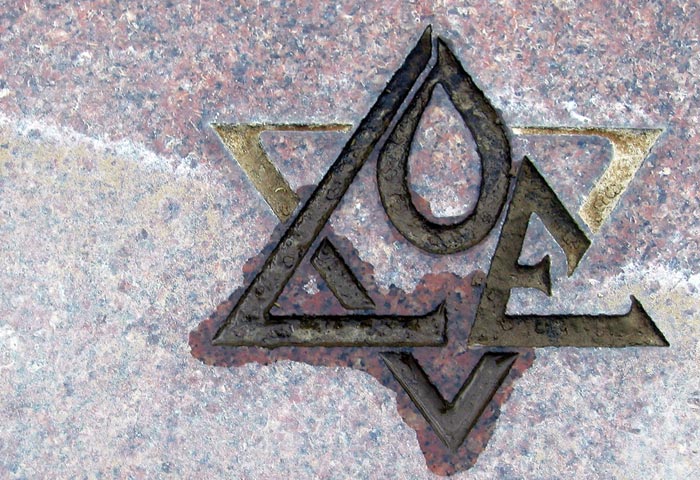 Gil Troy.
Gil Troy. Gil Troy, author of “The Zionist Ideas,” spoke with the Jewish Journal by phone from Jerusalem.
Jewish Journal: The late Rabbi Arthur Hertzberg was the editor of the first edition of a collection of essays titled “The Zionist Idea,” which was published in 1959. Whose idea was it to revise and republish the book, and whose idea was it to pluralize the last word in the title?
Gil Troy: I give 150 percent of the credit to the extraordinary, visionary leader of the Jewish Publication Society. I would never have had the nerve to fill Arthur Hertzberg’s huge shoes, but Rabbi [Barry] Schwartz came to me in 2012 and asked me to do it. I wasn’t sure that the world needed another Zionist anthology, but “The Zionist Idea” had been such an influential text — it was the bible for me and for multiple generations of English-speaking lovers of Israel — that I thought it deserved an update. The more I got into it, the more I realized that we have to invite more and more people into the Zionist conversation, from left to right, from religious to nonreligious. Now that we have a Jewish state, the question remains: How do we perfect it?
JJ: How many of the entries in “The Zionist Ideas” are carried forward from the first edition, and how many are new to this edition?
GT: Arthur Hertzberg had 240,000 words for 38 thinkers. I ended up with 180,000 words, but I was able to bring the total number of entries to 169. So it was a matter of cutting while keeping his core, and then bringing other voices into the conversation — the Mizrachi voice, the poetic voice, the female voice. For example, Henrietta Szold did not appear in the original edition, which was an outrageous act of omission even in 1959, and including her in the new edition is not affirmative action but a matter of historical justice.
“Of all the countries in the world, the only country that was voted into existence by the United Nations is now singled out for a campaign of delegitimization.” — Gil Troy
JJ: How would you sum up the changes in what Zionism means over the six decades since “The Zionist Idea” was first published?
GT: There’s a lot of nostalgia these days about “our grandfather’s Israel,” as Thomas Friedman puts it. But here’s the great irony: Israel in 1959 was a fragile place, but the Zionist conversation was robust. In 2018, Israel is remarkably robust, but the Zionist conversation has turned fragile. Of all the countries in the world, the only country that was voted into existence by the United Nations is now singled out for a campaign of delegitimization. On the other hand, and unfortunately, the fragility is also due to a vast and unacceptable intolerance on the part of both the left and the right in the Jewish community. Like the American conversation, the Zionist conversation should be driven by ideas about how we can bring out the best in us. That’s why the book is not just about Jews and the Jewish state. It’s a profound statement about the values and possibilities of liberal nationalism.
JJ: I fear that many readers will acknowledge that there is more than one idea of what constitutes Zionism but will refuse to acknowledge that any idea but their own is the right one. Are you concerned about the hardening of positions within the Zionist movement and the Jewish world?
GT: Again, that’s why I added the “s” to the title of the book. I was trying to say, yes, there are different ways for Zionists to understand Zionism, but we are all standing in the same tent. One of the most difficult tasks was to decide not only who’s in the book but also who’s out. There was one delicious day I had in Jerusalem when I sat down with two people I respect and asked: Should I include Meir Kahane? One said absolutely yes, and one said absolutely no. At the end of the day, I said no, because Zionism is ultimately a movement about democracy and decency. The Knesset itself voted out Kahane’s party, and that made the decision easier. And I asked the same question about how far left to go? Peter Beinart is in the tent, but another thinker who lives in Israel but calls himself a “post-Zionist” is out. You can be a good person, I’ll have a lunch with you, but if you deny the essential rationale for the existence of Israel, then you don’t fit in a Zionist anthology.
JJ: You identify six schools of thought about Zionism, one of which you call “Diaspora Zionism,” that is, Zionism for Jews who stay in America but support Israel. Some ardent Zionists of my acquaintance insist that you cannot call yourself a Zionist at all if you choose to remain in the galut. And there are those who suggest that the younger generation of American Jews no longer feel a strong sense of solidarity with Israel at all. How do you envision the future of Diaspora Zionism and the relationship between American Jews and Israel?
GT: [David] Ben-Gurion [co-founder of Israel and first prime minister] assumed that once there was a Jewish state, Jews in the Diaspora would either go there or disappear, but the fact is that millions of Jews came to America and stayed there, and only a very small number went to Palestine. I am an optimist, however, and that’s what motivated me stay up all night working on this book. Because I really do believe we are at a cusp — we can use the 70th anniversary of the founding of the State of Israel to either distance ourselves from Israel, or we can use it to double-down on Israel. The Jewish state builds my Jewish identity even if I spend my whole life in Los Angeles or New York or Miami. Jews in Israel and Jews in the Diaspora have something to teach each other. With that realization of identity Zionism, we can learn from each other. That’s the hope of “The Zionist Ideas” — we can give people the tools to have a conversation that isn’t just from the gut but also from the brain, and we can learn how to disagree without being disagreeable.
Jonathan Kirsch, author and publishing attorney, is the book editor of the Jewish Journal.























 More news and opinions than at a Shabbat dinner, right in your inbox.
More news and opinions than at a Shabbat dinner, right in your inbox.